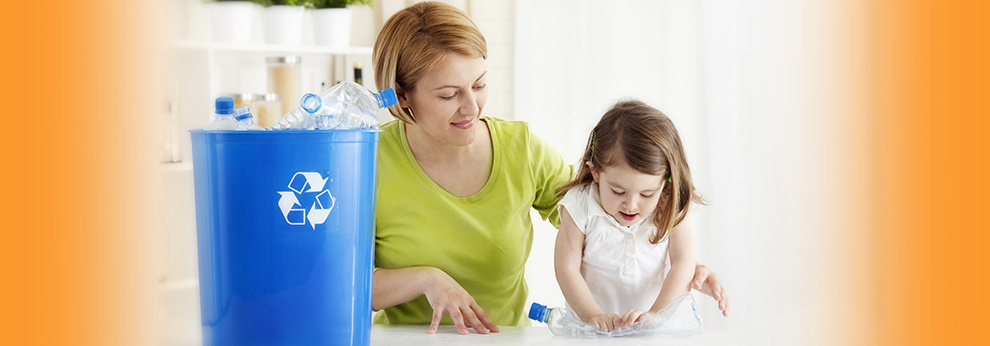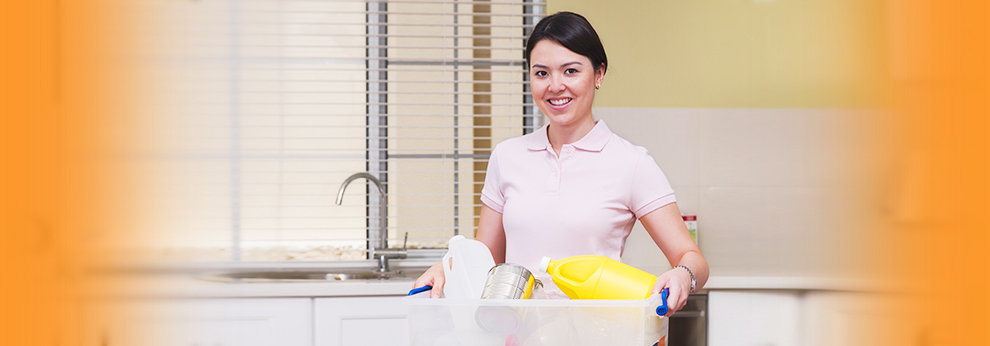Smart Home Solutions for Preventing Waste
Posted on 22/09/2025
Smart Home Solutions for Preventing Waste
Are you curious about how a modern smart home can help reduce waste and promote sustainability? Discover how innovative technologies and devices can turn your household into a model of efficiency, helping you save resources, lower costs, and protect the environment. In this comprehensive guide, we delve into various smart home solutions for preventing waste--from reducing energy usage to minimizing food spoilage, water waste, and more!

Why Smart Home Technology is the Key to Reducing Waste
The rise of smart home technology has transformed the way we interact with our living spaces. These advanced systems and devices not only offer convenience and security but also play a critical role in preventing everyday waste. From smart thermostats to automated recycling bins, the latest tech advancements enable homeowners to pursue a more eco-friendly lifestyle while making a significant impact on their utility bills and carbon footprint.
Top Benefits of Smart Home Waste Prevention
- Reduced utility costs through optimized energy and water use
- Minimized food spoilage and unnecessary purchases
- Promotion of sustainable habits among household members
- Enhanced convenience and comfort
- Lower environmental impact and support for global sustainability goals
Energy Efficiency: The Foundation of a Waste-Free Home
When discussing smart home solutions for minimizing waste, the first aspect that comes to mind is energy consumption. According to the U.S. Department of Energy, the average American household wastes up to 35% of its energy on inefficiencies. This can be drastically reduced with the adoption of intelligent energy management devices.
Smart Thermostats and Zoning Systems
One of the most effective innovations is the smart thermostat. Devices like the Nest Learning Thermostat or ecobee intuitively learn your routines, automatically adjust indoor temperatures, and provide energy usage feedback. When paired with zoning systems, they allow you to heat or cool only the rooms in use, further preventing unnecessary energy waste.
- Remote Control: Adjust your home's temperature from anywhere using your smartphone or voice commands.
- Geofencing: Activate or deactivate heating/cooling as you arrive or leave your home.
- Intelligent Scheduling: Devices can anticipate weather changes and adjust settings for maximum efficiency.
Smart Lighting Solutions
Lighting accounts for about 10% of any home's energy usage. Upgrading to LED lights is an excellent start, but integrating smart lighting systems--such as Philips Hue or LIFX--offers enhanced features:
- Automatic shut-off when rooms are empty
- Customized lighting schedules
- Voice or motion-activated controls
- Dimming capability for reduced power consumption
With these systems, you can eliminate the waste caused by leaving lights on unnecessarily and create comfortable, energy-efficient atmospheres in every space.
Smart Water Management: Preventing Water Waste at Home
Water scarcity is a global issue, but you can actively contribute to conservation efforts with a variety of smart home solutions for reducing waste. The latest smart appliances and devices help monitor, control, and optimize water use throughout your home.
Intelligent Leak Detectors and Shut-Off Valves
Leaks and drips often go unnoticed, leading to massive water waste. Installing smart leak detectors such as Flo by Moen or Phyn Plus can immediately alert you to leaks and automatically shut off the water supply, thus preventing wasted water and potential property damage.
- Real-time monitoring and alerts via smartphone apps
- Automatic shutdown systems reduce catastrophic water loss
- Detailed water usage reports for ongoing optimization
Smart Irrigation Controllers
The average homeowner can waste thousands of gallons of water annually due to inefficient outdoor watering. Smart irrigation controllers use weather data, soil moisture sensors, and plant-specific programming to deliver the right amount of water, only when necessary. This significantly cuts down garden and lawn water waste.
- Adaptive water schedules based on local weather
- Integration with weather forecasting for timely pauses
- Remote management via mobile devices
Smart Appliances with Water-Saving Features
Modern washers, dishwashers, and toilets often come with smart water usage monitoring. These appliances automatically adjust cycles to use the minimum water required, based on load size and content, further decreasing household water waste.
Reducing Food Waste with Smart Kitchen Technology
Food waste not only hurts your wallet but also contributes to methane emissions in landfills. With the help of smart home kitchen devices, you can cut down on spoilage, overbuying, and improper storage. Here's how:
Smart Refrigerators
Brands like Samsung and LG offer smart refrigerators with internal cameras, expiration date trackers, and inventory management integrated into their software. These features alert you to items about to expire, generate shopping lists, and reduce duplicate grocery purchases.
- View fridge contents remotely while shopping
- Get notifications for expiring food
- Automatically generated recipes to use up ingredients
Connected Pantry and Inventory Apps
Apps like Out of Milk and Pantry Check seamlessly sync with your smart home devices to help track food inventory, create shopping lists, and suggest recipes based on what you already own--thus preventing unnecessary purchases and using up existing food before buying more.
Smart Composting Solutions
For unavoidable food scraps, smart composters like Lomi and Vitamix FoodCycler rapidly break down organic waste into nutrient-rich compost, reducing landfill contributions and supporting at-home gardening. Many models even sync with your smartphone to let you know when the process is complete or when the unit requires emptying.
Waste Separation and Recycling: Smart Solutions for a Sustainable Home
One of the biggest hurdles in effective recycling is proper waste sorting. Smart home products now make recycling easier and more accurate, so materials are less likely to be contaminated and rejected by recycling centers.
Intelligent Trash and Recycling Bins
Next-generation bins like Bin-e utilize sensors and artificial intelligence to automatically identify, sort, and compact recyclable materials. With real-time feedback and reminders, household recycling becomes far simpler and more efficient--and reduces landfill waste.
- Automatic waste sorting (glass, plastic, paper, etc.)
- Compaction to maximize storage and reduce pickup frequency
- Fullness alerts sent directly to your phone
App-Based Reminders for Scheduled Waste Disposal
Many communities offer waste sorting and garbage pickup schedule apps that integrate with smart home calendars and voice assistants. These tools eliminate missed pick-ups, prevent messes, and encourage regular, proper recycling and composting habits.
Other Smart Home Solutions for Minimizing Waste
Beyond the big three--energy, water, and food--many other components of household waste can be tackled through smart technology.
Smart Plugs and Power Strips
Connected outlets can detect when devices are idle and cut power automatically, preventing phantom loads and electronics waste, which represent a significant portion of residential energy waste.
Voice Assistants and Behavioral Nudges
Voice-based AI assistants like Amazon Alexa and Google Assistant can prompt you with reminders to turn off unused appliances, use less water, or recycle, reinforcing sustainable habits throughout the household.
Home Automation Platforms
Complete home automation systems enable devices to communicate and automate routines that maximize efficiency and reduce waste. For example, smart blinds can close automatically during hot afternoons, reducing cooling needs, while sensors alert you to open windows during heating or air conditioning cycles.
How to Get Started with Smart Home Solutions for Preventing Waste
Transitioning to a smart, waste-reducing home might seem daunting, but taking incremental steps can yield noticeable benefits. Here are some tips to launch your journey:
- Conduct a waste audit: Determine which areas--energy, water, food--contribute most to waste in your household.
- Start with basic upgrades: Install a smart thermostat, LED lights, or leak detectors.
- Connect devices to a centralized smart home platform for integrated automation and control.
- Review and refine: Use your devices' data analytics to pinpoint waste and refine routines accordingly.
- Engage your family: Encourage everyone to participate and benefit from the savings and sustainability achievements.
Tips for Maximizing Smart Waste Prevention:
- Keep firmware updated: Ensure all devices run the latest software for optimal performance and new features.
- Use real-time feedback: Regularly review energy and water reports to track progress.
- Research compatibility: Prioritize products that integrate smoothly with your preferred voice assistant or automation hub.
- Set reminders: Let your voice assistant nudge you for recycling days or when items are nearing expiration.

The Future of Smart Technologies in Waste Prevention
As Internet of Things (IoT) technologies continue to advance, the future of waste prevention in smart homes grows brighter. Upcoming trends include:
- AI-driven predictive analytics for personalized waste reduction strategies
- Greater integration between appliances, utilities, and city waste management systems
- Innovative composting and recycling robots for at-home use
- Blockchain-based tracking for responsible product lifecycle management
With these advancements, the vision of a truly zero-waste smart home becomes ever more attainable.
Conclusion: Embrace Smart Home Solutions to Eliminate Waste
Waste prevention is one of the most impactful steps you can take toward a more sustainable lifestyle. By integrating smart home solutions--from energy and water management to smart kitchen devices and waste sorting bins--you can significantly reduce your environmental footprint while enhancing everyday convenience and saving money. Start with small upgrades, harness the power of automation, and watch as your home becomes a shining example of modern, sustainable living.
If you're ready to take control of your household's efficiency and champion a greener future, explore the transformative possibilities of smart home solutions for preventing waste today.
Latest Posts
Innovative Strategies for Office Recycling
Working Green: A Journey to Zero Office Waste
Ingenious Ways to Refashion Your Old Garments





